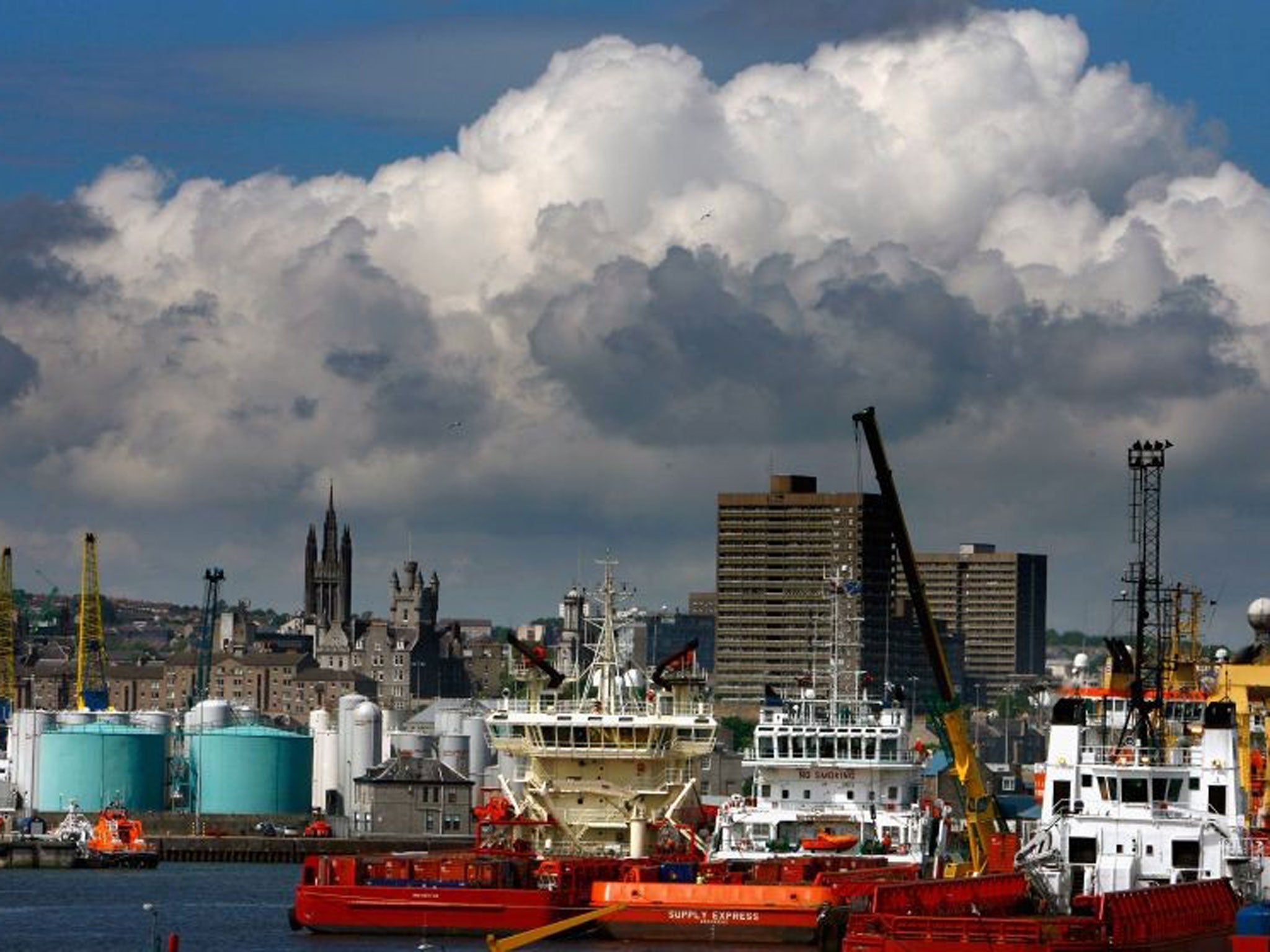North Sea oil investment could be at risk if Scotland votes for independence, warns David Cameron ahead of Aberdeen cabinet meeting
PM says investment would be stronger if industry stays British

Your support helps us to tell the story
This election is still a dead heat, according to most polls. In a fight with such wafer-thin margins, we need reporters on the ground talking to the people Trump and Harris are courting. Your support allows us to keep sending journalists to the story.
The Independent is trusted by 27 million Americans from across the entire political spectrum every month. Unlike many other quality news outlets, we choose not to lock you out of our reporting and analysis with paywalls. But quality journalism must still be paid for.
Help us keep bring these critical stories to light. Your support makes all the difference.
The future of Britain's North Sea oil and gas industry depends on Scotland remaining in the United Kingdom, David Cameron said yesterday as he prepared to hold a Cabinet meeting in Aberdeen in the latest stage in the battle over independence.
In comments that will be highly provocative to SNP leader Alex Salmond, the Prime Minister said the Government can "maximise the benefit of North Sea oil and gas to the UK economy for decades into the future, giving a vital boost to local communities and families across Scotland". And in a ramping up of the anti-independence rhetoric, Scottish Secretary Alistair Carmichael called Mr Salmond a "man without a plan".
Mr Cameron will chair his Cabinet in Aberdeen just a few miles away from where the First Minister is holding his weekly meeting in Portlethen.
The Yes campaign is fiercely protective of North Sea oil, with nationalists seizing on an official report recommending that the industry's regulator be based in Aberdeen rather than London. Mr Cameron is expected to back the plan, proposed by oil chief Sir Ian Wood, to shift the operation from Whitehall to Aberdeen.
Building on a speech he gave on Scotland earlier this month, Mr Cameron said yesterday that Scotland remaining part of the UK was essential to the Government's "long-term economic plan" for recovery and job creation. The UK's "broad shoulders" – as a united country – meant it was in a strong position to invest in North Sea oil and gas and compete in the "global race", he claimed. "The plan is working. Last year the economy grew by the fastest annual rate since the financial crisis. We have the highest number of UK businesses on record and we have cut taxes for 25 million people. And, last week, we saw that 1.3 million more people are now in jobs across the whole UK compared with 2010. That's 1.3 million more people with the security of a monthly pay packet.
"For the past 300 years, Britain has led the way in finding new sources of energy. It is the strength of the UK's broad-based economy, which can make the difference and ensure we can invest in our energy for the long-term future. I promise we will continue to use the UK's broad shoulders to invest in this vital industry so we can attract businesses, create jobs, develop new skills in our young people and ensure we can compete in the global race."
Mr Carmichael added: "The Government has a plan and it is working. But contrast this with those that have no plan – who respond to the very serious questions about issues such as currency and EU membership with bluster and diversion tactics.
"A currency union is not going to happen and Alex Salmond knows it. He is the man without a plan. Independence is a hugely risky, dangerous and uncertain step and the time has come for him to start being honest with the people of Scotland about the consequences of leaving the UK. Scotland has the best of both worlds as part of the UK. We need to keep it that way."
Subscribe to Independent Premium to bookmark this article
Want to bookmark your favourite articles and stories to read or reference later? Start your Independent Premium subscription today.
Join our commenting forum
Join thought-provoking conversations, follow other Independent readers and see their replies
Comments